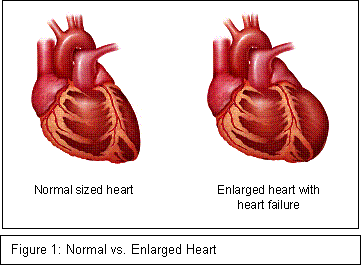Study: How Gender Impacts Enlarged Hearts After Valve Replacement
By Adam Pick on September 20, 2010
In the past, we’ve talked about the risks of valvular disorders and enlarged hearts. Recently, a study was released which further examined whether or not dilated hearts return to normal size after heart valve surgery. Interestingly, the study considered this post-operative objective from a male and female perspective.

According to the study, published in Circulation, genetic differences may explain why enlarged hearts shrink faster in women than in men after aortic valve replacement. If you were unaware, heart enlargement (also known as dilation) can occur when the aortic valve becomes narrowed due to aortic stenosis.
This disease results in limited blood flow through the aortic valve. An aortic valve replacement with a mechanical, tissue or human donor valve treats this problem.
- The German researchers said their study of 53 female (average age 72) and 39 male (average age 67) patients found that heart enlargement regressed faster in the women than in the men after aortic valve replacement. This may be because of genetic differences that cause men’s hearts to develop more fibrous tissue after surgery.
- Left ventricle enlargement was more common in women than in men before aortic valve replacement. After surgery, the prevalence of this condition fell more in women (86 percent to 45 percent) than in men (56 percent to 36 percent).
Dr. Vera Regitz-Zagrosek, director of the Institute of Gender in Medicine at Charite University of Medicine in Berlin, and co-author of the study, said, “We show for the first time that elderly women and men differ in their gene expression related to fibrous heart tissue. We hypothesize that women with aortic stenosis develop a different form of the same disorder.”

According to the researchers, the findings above need to be replicated in larger trials (that are already under way), but may lead to new ways to slow the increase of fibrous heart tissue after aortic stenosis.
Pretty interesting, right?
Keep on tickin!
Adam
|
Edward Mroczynski says on September 20th, 2010 at 3:28 pm |
|
I am 81 and require a Aortic Valve replacement. I am within two months before surgery. What can I expect after surgery, such as activity and recovery period? I am in good health and I am active. |
 |
|
tom lamont says on September 24th, 2010 at 11:19 am |
|
I had valve repair and by pass surgery 2 years ago. Since then I have been taking lipitor, metopropal and baby aspirin daily. Prior to the surgery I was using Viagra occasionally. Is it true that it is dangerous to take Viagara following surgery when using these meds? |
 |











